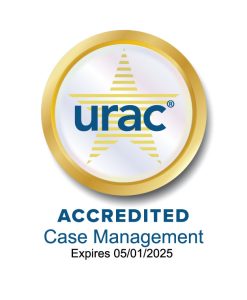By: Renée Dain, SVP, Strategic Partnerships and External Affairs
Nicole Dozier, LCSW-C, Social Work Consultant for Community First Programs
Advance Directives, Guardianship, and Power of Attorney are legal tools that individuals can use to plan for their future, particularly in situations where a person may be unable to make decisions for themselves due to illness, incapacity, or other circumstances. Clearly outlining one’s wishes and designating decision-makers can help prevent family disagreements during challenging times. Having legally binding documents in place can provide a clear roadmap for how decisions should be made, reducing potential conflicts.
 We recently sat down with Nicole Dozier, LCSW-C, Social Work Consultant for Community First Programs at The Coordinating Center to learn more about these legal documents and planning for your future.
We recently sat down with Nicole Dozier, LCSW-C, Social Work Consultant for Community First Programs at The Coordinating Center to learn more about these legal documents and planning for your future.
What is the difference between an Advanced Directive and a Power of Attorney? I am not an attorney or legal expert, but in my role as Social Work Consultant for Community First Programs at The Coordinating Center, I have seen firsthand the importance of planning for your future. An Advance Directive primarily deals with healthcare decisions. It allows individuals to express their medical treatment preferences and appoint someone (a healthcare proxy or agent) to make healthcare decisions on their behalf if they become incapacitated and are unable to communicate their wishes. A Power of Attorney (POA) grants someone the authority to act on behalf of another person in specified legal or financial matters. The person granting the authority is known as the “principal,” and the person receiving the authority is the “agent” or “attorney-in-fact.”
Both documents, an Advance Directive and a POA, should be set up when you are of sound mind and able to make decisions, as they are activated only when you are incapacitated and are unable to handle your affairs.
What is Guardianship, and in what cases is it necessary?
Guardianship is a legal process where a court appoints a guardian to make personal and/or financial decisions for an individual (the ward) who is deemed legally incapacitated and unable to make decisions for themselves. Guardianship proceedings are initiated through a court petition and involve a legal determination of the individual’s incapacity. Guardianship may be necessary if a loved one is experiencing severe cognitive impairment, traumatic brain injury, mental health conditions that impede one’s ability to make reasonable decisions, or another urgent situation that impacts the person’s ability to make decisions, which may be temporary or permanent.
Why is planning for your future important?
Planning in advance can help ensure that your wishes are honored and that your affairs are managed in a manner consistent with your values and preferences. Knowing that one’s wishes will be respected, and that trusted individuals are empowered to make decisions on their behalf, can provide a sense of peace and security. It also relieves loved ones of the burden of making difficult decisions without clear guidance.
Join Nicole Dozier on February 20, 2024, at Noon, for a special webinar on Advance Directives, Guardianship and Power of Attorney. During the webinar we will explore everyday scenarios that will enhance your understanding of the advantages of having these documents prepared in advance. Click HERE to register to attend. This webinar is part of The Coordinating Center’s new Community Enrichment Series – engaging workshops supporting individuals and families to achieve their aspirations for a meaningful life!
Nicole Dozier, LCSW-C has 17 years of experience in Medical Social Work and has been with The Coordinating Center for almost six years. As Social Work Consultant, Nicole is responsible for providing clinical expertise to staff providing services to individuals in the Community First Programs.





